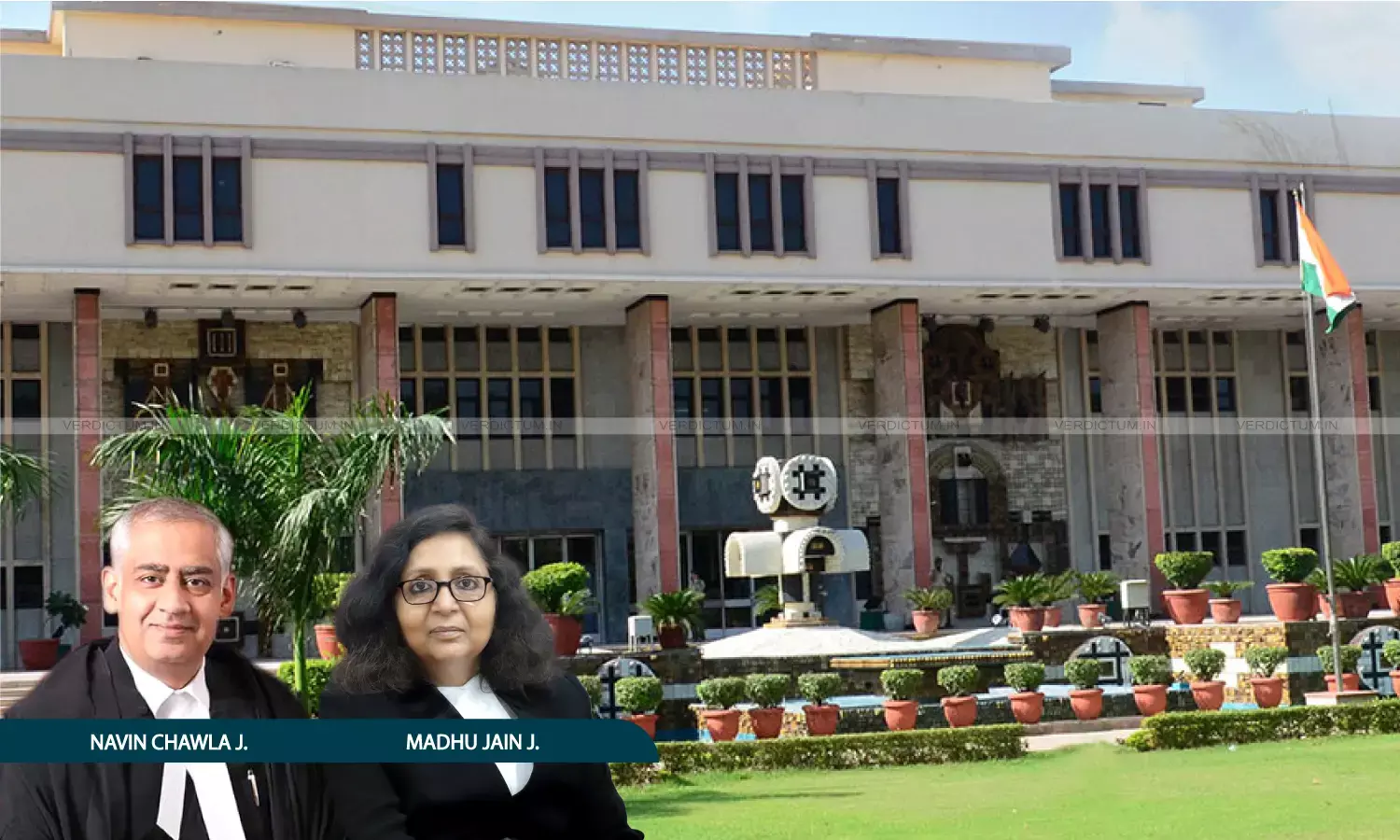CCS (Conduct) Rules| Chargesheet Issued Without Authority Can Be Challenged At Any Stage: Delhi High Court
The Petition before the Delhi High Court was filed against the Order of the Central Administrative Tribunal setting aside the impugned charge Memo.

Justice Navin Chawla, Justice Madhu Jain, Delhi High Court
While upholding an order setting aside a charge memo issued against a former Ministry Of Defence Officer, the Delhi High Court has held that once the chargesheet is found to have been issued without the authority and is to be declared non est, the same can be challenged at any stage and the principle of res judicata will not apply.
The Petition before the High Court was filed against the Order of the Central Administrative Tribunal, Principal Bench, New Delhi (Tribunal) allowing the Original Application filed by the respondent and setting aside the impugned charge Memo.
The Division Bench of Justice Navin Chawla and Justice Madhu Jain asserted, “Be that as it may, we are of the opinion that once the chargesheet is found to have been issued without the authority and is to be declared non est in terms of the Judgments of the Supreme Court, the same can be challenged at any stage and the principle of res judicata will not apply.”
Advocate Vijay Joshi represented the Petitioner, while Advocate Avneesh Garg represented the Respondent.
Factual Background
One Nirmala Devi, who was a Peon in the Directorate of Pay, Pension and Regulations, filed two complaints against the respondent, the then Joint Director in the Directorate of Pay, Pension and Regulations, Air Headquarters, Ministry of Defence, alleging sexually inappropriate behaviour towards her daughter and daughter-in-law. The Committee on Sexual Harassment submitted its report, wherein it was opined that although there was insufficient corroboratory evidence to establish a clear case of sexual harassment, underlying currents of actions causing anguish and trauma existed, and needed to be taken cognizance of. A chargesheet was issued against the respondent for violation of Rule 3(1)(iii) of CCS (Conduct) Rules, 1964, that is, the conduct unbecoming of a Government servant.
The Disciplinary Authority passed the first penalty order directing that the respondent would not receive salary increases for two years and that his future increases would be postponed. An appeal was filed, and the matter was remanded back. The Disciplinary Authority passed a second penalty order, imposing a reduction in rank from Joint Director (in-situ) to Deputy Director on the respondent. After filing continuous applications, the Tribunal, vide the Impugned Order, set aside the chargesheet along with the other orders, and directed that the respondent shall be entitled to all consequential benefits. Aggrieved thereby, the petitioners filed the petition before the High Court.
Reasoning
On a perusal of the facts of the case, the Bench noted that the chargesheet issued under Rule 14 of the CCS (CCA) Rules, 1965, did not have the approval of the Competent Authority- Raksha Rajya Mantri. The Bench also reaffirmed that the chargesheet, having been issued without the approval of the Raksha Rajya Mantri, would be non est and could not be validated by subsequent actions
“The reliance of the petitioners on the Authentication (Orders and other Instrument) Rules, 2002, issued on 16.02.2002 to breathe life into the chargesheet, can also not be accepted. The said rules merely prescribe the authorities who can authenticate the orders and other instruments made and executed in the name of the President. The same, therefore, have no bearing as far as compliance with Rule 14(3) of the CCS (CCA) Rules, 1965 is concerned”, it added.
The Bench was of the view that once the chargesheet itself was found to be non est and without the authority of law, the entire structure built thereon had to crumble. “Principles of estoppel and res judicata would not apply to breathe life into a stillborn proceeding”, it said while referring to the judgment of the Apex Court in Ashok Leyland Ltd. vs. State of T.N. and Anr., (2004), wherein it was held that when an order is passed without jurisdiction, the same becomes a nullity and cannot be supported by invoking procedural principles like estoppel, waiver or res judicata.
Thus, finding the chargesheet to be non est, the Bench dismissed the Writ Petition.
Cause Title: Union of India Through Secretary & Ors. v. S K Jasra (Neutral Citation: 2025:DGC:8595-DB)
Appearance
Petitioner: Advocates Vijay Joshi, Shubham Chaturvedi
Respondent: Advocates Avneesh Garg, Pavitra Singh, Iptisha

